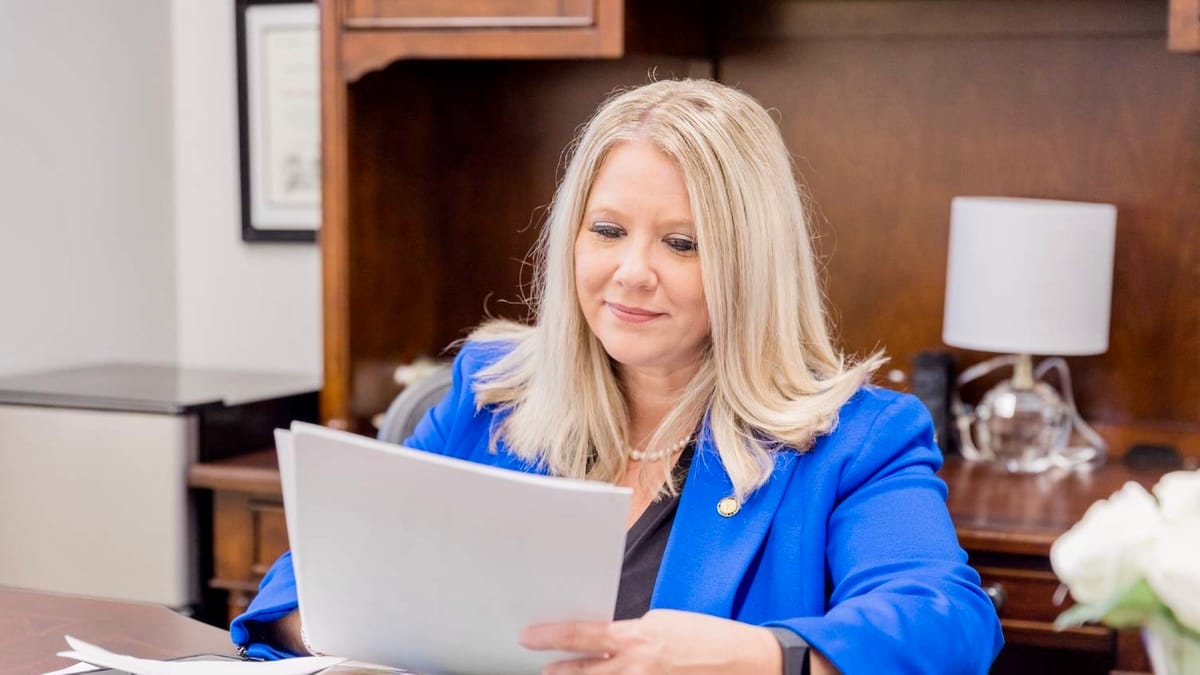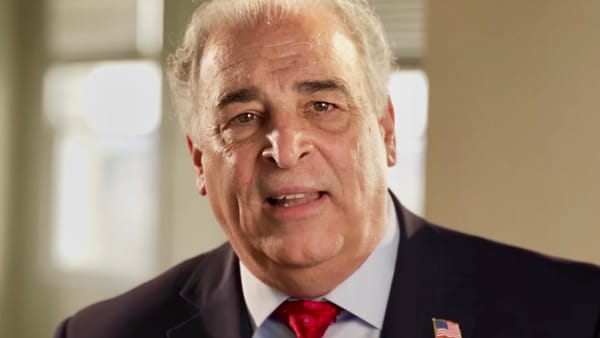Alabama State Senator April Weaver Tapped to Co-Chair Healthcare Panel for Rural Roadmap Initiative
Will Co-Chair with State Rep. Phillip Rigsby

State Senator April Weaver (R–Brierfield) has been selected to serve as Co-Chair of the Rural Roadmap Initiative’s Healthcare Committee. In this role, she will help draft legislation and policies aimed at strengthening healthcare access and delivery in Alabama’s rural areas.
Senate President Pro Tem Garlan Gudger (R–Cullman), who leads the Rural Roadmap Initiative, praised Weaver’s selection, saying: “Her knowledge, her background, her hands-on experience, her leadership, her compassion, and her deep roots in rural Alabama all combine to make Sen. Weaver the perfect choice to lead this healthcare committee.”
Alabama’s rural hospitals are under severe pressure. Since 2011, at least seven small hospitals have closed. Of the remaining 52 facilities, more than half are considered at risk—and about 19 might shutter in the next three years.
According to Weaver’s own commentary: “This crisis demands urgent action” and leaders must act now to stop the closures. She said the Rural Hospital Investment Tax Credit is one important tool. Modeled after Georgia’s program—where it generated over $430 million in donations since 2017—it could likewise help fund patient care, upgrades, and staffing in Alabama.
The Rural Hospital Investment Tax Credit, passed and signed as Act 2025-404, allows tax-paying individuals and entities to receive dollar-for-dollar credits for donations to rural medical centers. Weaver has described rural hospitals as “huge employers in a rural area, … huge economic drivers,” which motivated her support for the bill.
Under the Rural Hospital Investment Tax Credit, donors can receive tax credits for contributions to eligible rural hospitals. The credit limits are as follows:
- Individual taxpayers: up to $15,000
- Married couples filing jointly: up to $30,000
- Pass-through entities: up to $450,000
- Corporations: up to $500,000
To qualify for the program, hospitals must be located in federally designated rural areas, serve Medicare and Medicaid patients, provide services to indigent patients, and submit a five-year financial plan. These funds can be used for direct care and operational expenses, including expenditures to maintain or upgrade facilities.
Alabama’s rural hospitals have been struggling for years, with at least seven closing since 2011 because of financial issues. Alabama has an estimated 52 rural hospitals that meet federal criteria for funds under HB86–a third of which are at risk of closing.
Weaver brings deep experience to her new position, including:
- A registered nurse with over 25 years in healthcare leadership and policy
- From 2010 to 2020, she represented District 49 in the Alabama House (covering parts of Shelby, Bibb, and Chilton counties); she joined the State Senate in 2021
- During President Trump’s first term, she served as Region IV Director at the U.S. Department of Health and Human Services, overseeing eight states and six federally recognized tribes
The Rural Roadmap Initiative works through the Alabama Growth Alliance—a 15-member public-private body created by the Legislature. Its mission is to guide growth in rural Alabama in areas like infrastructure, business development, workforce training, quality of life, and healthcare.
Within this setting, Weaver’s committee will focus on issues such as:
- Finding sustainable funding for rural hospitals
- Recruiting and keeping healthcare professionals (doctors, nurses, others)
- Expanding telehealth and improving broadband access
In addition to Weaver from the Senate, State Representative Phillip Rigsby (R–Huntsville)—a pharmacist—will serve as Co-Chair representing the House.
For more information on the Rural Hospital Investment Tax Credit is available HERE.




